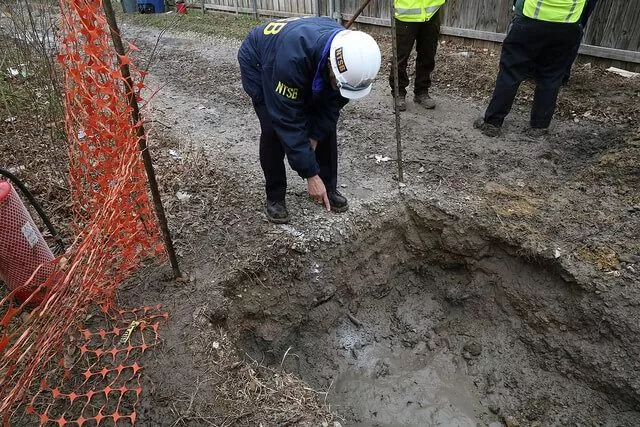
A number of homes in the North Texas area use natural gas to fuel appliances like gas stoves, clothes dryers, water heaters, fireplaces, and furnaces.
Many believe gas is a more efficient and cost effective source to heat their homes and cook their food. But once that gas is turned off, getting it turned back on is a long and expensive process.
Why Turn Off the Gas?
Let’s quickly go over why you or the gas company might need the gas turned off in the first place.
Gas leaks
You think you smell gas and suspect a gas leak. If this is the case, call the gas company immediately so they will turn off the gas. Additionally, gas companies are constantly monitoring their lines and service. So if they suspect a gas leak, they will go ahead and turn the service off.
Gas leaks are incredibly serious and should be treated as such. Not only are you, your family, and home in danger but it is also potentially dangerous for the surrounding area as well.
Gas leaks can cause house explosions, and there have been several in the Dallas/Fort Worth area — one in Garland in 2001, another in Wylie in 2006, and three homes were destroyed by a gas leak in 2008 in McKinney. These and more left many injured and some dead.

NTSB inspection of a Dallas area gas leak explosion
New Tenants or Owners
If you’re moving into a new home or rental space, the old owners or landlord could have had the gas turned off.
How to Get the Gas Turned Back On
As I mentioned in the introduction, this is a long and expensive process which is why it’s important for you to know what’s involved.
If you or the gas company suspect there is a gas leak, the gas company turns off the gas and plugs the system so it can’t be turned back on by anyone but them.
Once the system is turned off for a potential gas leak, you are required to have a licensed plumber come out to test for leaks. And if any repairs are needed, the plumber usually needs to pull a permit from the city to make those repairs. Once everything is fixed, the system has to be inspected by a city inspector from the building inspections department of that city.
If your gas system passes inspection, the city inspector releases the system back to the gas company. Only the city inspector can send the release back to the company.
But this only means the gas can be turned back on. The only way to get it turned back on is by you, the homeowner, contacting the gas company. You have to call the gas company and request they turn your service back on.
And it’s an almost identical process when a landlord turns off the gas between tenants or a seller turns it off after moving out.
The main thing to be aware of in this situation is you, the landlord or the buyer, have to go through this entire process if the gas is left off for about 60 days or longer.
Code Upgrades?
 But let’s throw another wrench into this already involved process: possible code violations. It’s possible, depending on when your system was built, your system does not meet current city code requirements. These upgrades and amendments happen when it’s been determined the previous codes are not safe, so then the codes are changed.
But let’s throw another wrench into this already involved process: possible code violations. It’s possible, depending on when your system was built, your system does not meet current city code requirements. These upgrades and amendments happen when it’s been determined the previous codes are not safe, so then the codes are changed.
It’s during the repair process that the plumber will also upgrade your system’s codes in order to pass inspection.
Put as Simply as Possible
Let’s quickly summarize the steps to getting your gas turned back on once it’s been shut off:
- A licensed plumber tests the system
- If a gas leak is detected, the leaks are located
- A permit is pulled from the city to make repairs
- Make repairs and bring system up to code, if necessary
- City inspector scheduled to come out and inspect the system
- If the system passes inspection, CI releases the system back to the gas company
- Homeowner calls the gas company to get service turned back on
We think it’s important for everyone to understand the process. And if you have a suspected gas leak, there’s no getting around it.
However, we do recommend for home sellers and landlords to save themselves and potential buyers the headache and keep the gas on, if at all possible.
If you have any questions, give us a call at 972-494-1750 or email service@inhouseplumbingcompany.com.

